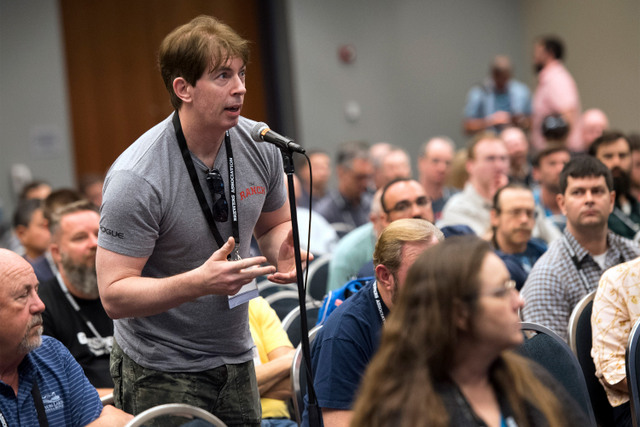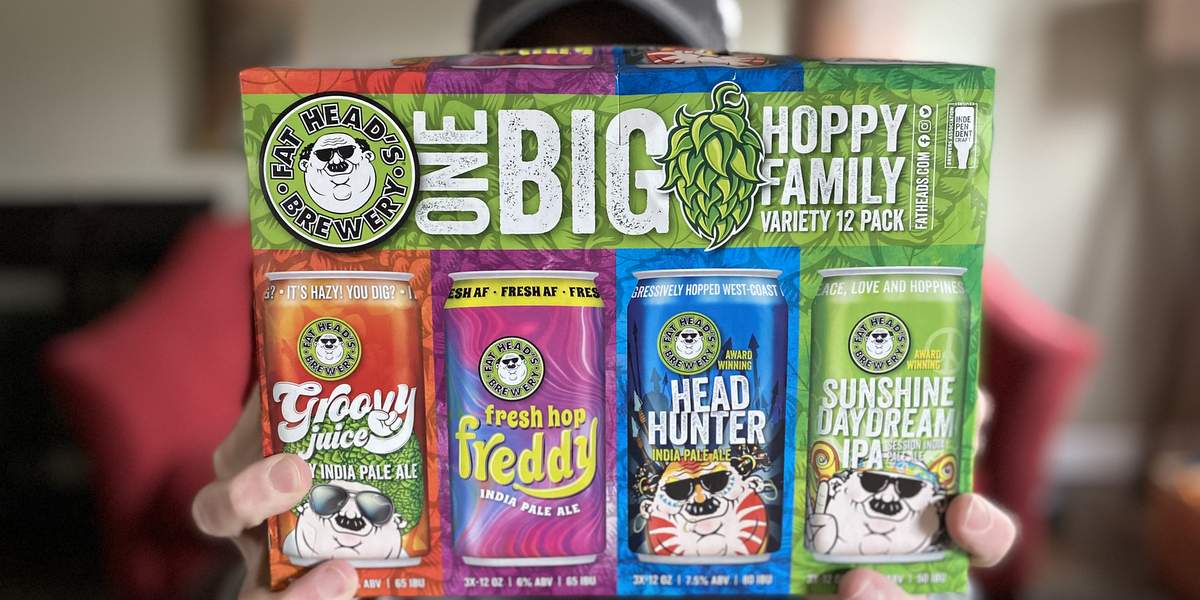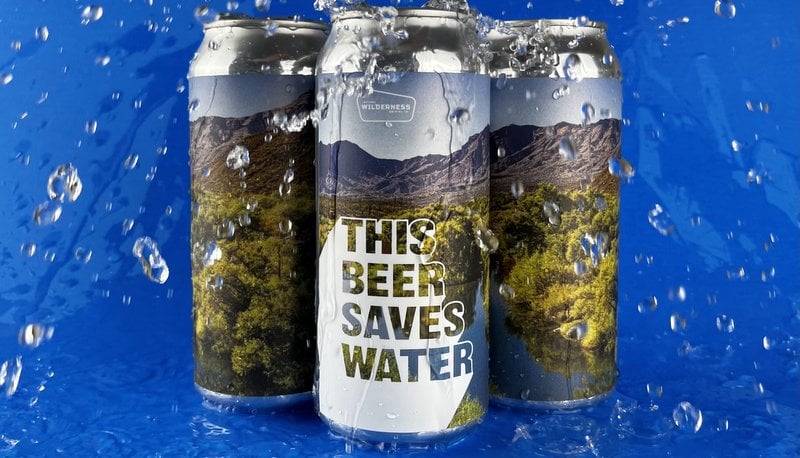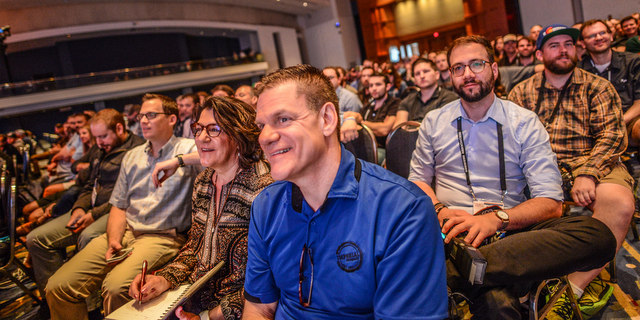
At this year’s Craft Brewers Conference, some of the country’s oldest craft brands agreed that two things are necessary for remaining relevant: community and quality.
These themes emerged repeatedly in the panel, “Staying Relevant After All These Years,” which featured Natalie Cilurzo of Russian River, Chris Cramer of Karl Strauss, John Martin of Drake’s and David Walker of Firestone Walker — owners and founders of breweries between 20 and 30 years old with strong local presences and wide-ranging reputations.
While the question of relevance keeps the youngest breweries up at night, these established brands reported that it remains a concern decades into their businesses. “The narrative has changed, but the riddle is the same,” David Walker explained.
In fact, they connected their ability to stay relevant with their longevity as craft brands. Chris Cramer described how in the early days of Karl Strauss, consumers were used to corporate beer, so they used a corporate look to establish trust. They have since overhauled that look, now that a craft culture has taken root. “Now you need to avoid that [corporate] look,” he observed (perhaps stating the obvious).
“You need to embrace change,” he added, but acknowledged that sometimes “you need to work to take [your customers] with you.”
Relevance is the result
To say that relevance remains a concern is not the same as saying that relevance is itself the priority. Instead, relevance for these breweries is a by-product or result of focusing on the strength of their businesses, their relationships with their teams and partners and the needs and interests of their communities.
For John Martin and Natalie Cilurzo, quality and people go together. “In the long term, it’s really about the brand,” Martin said. “[Consumers] have to trust you, and that means quality.”
RELATED: Beer qualities vs. beer quality: How to improve your brewery’s QA culture
Cilurzo said her one piece of advice for craft brewers would be, “Pay attention to everything!” which . . . seems broad. But she explained that “everything” primarily entails the quality of your beer, the needs of your team and your relationships with distributors and consumers — in other words, the people involved in brewing your beer, transporting and drinking your beer.
Interestingly, this line of thought dovetailed well with graphic designer Tony Figoli’s advice in his seminar, “Your Branding Stinks — But Don’t Change a Thing!” Figoli made the case that breweries who constantly rebrand themselves mistake novelty for relevance. “Consistency, [not pretty new labels], is going to keep you afloat,” he said.
To be relevant, look local
Relevance is not the same as sales or volume or distribution, either. All the panelists agreed that the first place to begin establishing your relevance as a brewery was with your own community.
David Walker advised that you “think in concentric circles [from your brewery] and work out.” He quoted his partner Adam Firestone, who likes to say that “Beer is perishable, and it’s heavy.” In other words, your money is best spent on getting it into the hands of people nearby.
Chris Cramer suggested you look for local charities to invest in or events to sponsor and participate in. This advice may come as little surprise to many craft startups, who generally hustle pretty well to be involved locally, and one may even wonder if it’s as relevant today as it was 30 years ago. However, with the total number of U.S. breweries hitting 5,300 last year, the word local was on everyone’s lips at CBC.
The fact of the matter is that market data shows consumers still have loyalty to local brands, perhaps something like local sports teams. People want to be proud of the beer produced where they live, and the advice of this panel was to do things to make them proud.
Craft brewers unite!

During the general sessions, the Brewers Association (BA) made the case for the importance of small, independent, tradition-minded brewers staying united even as competition for distribution and shelf-space increased. In his keynote, author and master brewer Dick Cantwell even addressed the sense among younger brewers that the BA was somehow for an older generation. He insisted that belonging to a guild connects you to a wealth of expertise and knowledge as well as giving you a bigger voice.
Somewhat to my surprise, David Walker joined this chorus.
I don’t know about you, but everything I’ve ever read about David Walker has given me the impression that he epitomizes much about the cavalier, revolutionary spirit of craft brewing. Whether that’s accurate or not, I wouldn’t expect him to be super excited about getting involved in guild meetings and subcommittees and so on. And yet he affirmed with the BA and his fellow panelists that membership in local and national guilds is essential.
Natalie Cilurzo first noted that association membership makes you part of the conversation: “It’s imperative [to join] in order to stay informed and have a voice,” she said.
Walker added that in a guild your competitors become your partners, then he further suggested that precisely because craft is “still an insurgent” and “needs a revolutionary spirit,” brewers should join guilds. That is, an organization like the BA provides a channel for the values of craft brewers to have real impact at the local and national levels.
Anyone familiar with the history of the craft movement in this country will also hear implied in that comment that no one succeeds as a brewer on their own. Newer brewers open their doors to an established craft beer culture, but we would not have a craft beer culture without the cooperation and camaraderie of those brewers in the ’80s and ’90s who saw themselves as part of a movement rather than as cutthroat competitors.
How, then, do you stay relevant — and stay in business for decades? Turns out you have to worry less about relevance as such and more about running a sound business and treating people right. One of the things we all agree upon in the craft beer world is that we’re a great group of people. Maybe that means it’s the business end that will make the real difference for who will be around in the next 20 years.
Brad Fruhauff is a good dude, a great beer writer and a contributor to Craft Brewing Business. Plus, he wants to write for your brewery. Check out his other work here.






[…] “The narrative has changed, but the riddle is the same,” David Walker explained. In fact, they connected their ability to stay relevant with their longevity as craft brands. Craft beer veterans share their secrets for staying relevant over the years […]